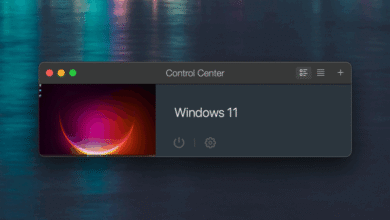Breakthrough Gaming Enhancer Hits Target, Yet Faces Potential Disruption: Not Your Average Change.org Story!

Stop Killing Games: A Call for Change in the Gaming Industry
The gaming industry is currently facing a significant turning point, marked by a powerful grassroots movement known as Stop Killing Games. This campaign has seen an astonishing surge in support, attracting the attention of game developers, publishers, and gamers alike. However, as the movement races past its goals, it also faces challenges that could undermine its efforts, including concerns about potential signature spoofing. This is not merely a brief online petition; it’s a call to action that seeks to hold the gaming industry accountable for its practices.
The Rise of the Stop Killing Games Movement
Launched in response to the troubling trends in game development and monetization, the Stop Killing Games initiative has become a beacon for gamers disillusioned by the current state of the industry. Players are voicing their frustrations over issues such as lackluster game releases, reliance on microtransactions, and the increasing prevalence of unfinished games at launch. The movement emphasizes the need for accountability and transparency in the gaming industry.
Throughout its journey, the campaign has utilized social media platforms to galvanize support and share testimonials from gamers around the world. The hashtags associated with this movement have trended on Twitter, Instagram, and TikTok, allowing individuals to unite over a shared concern: the degradation of creative storytelling and gameplay mechanics in favor of financial gain.
Goals of the Campaign
The primary objectives of the Stop Killing Games campaign are clear:
- Demanding Better Quality Control: Gamers are advocating for comprehensive quality assurance protocols to ensure that games are released in a playable state.
- Accountability for Developers and Publishers: The movement aims to hold companies responsible for their products, fostering a sense of ethical responsibility toward the gaming community.
- Promoting Fair Monetization Practices: The campaign seeks to eliminate exploitative microtransactions that detract from the core gaming experience.
- Encouraging Player Feedback: It encourages transparency in the development process, allowing players to have a voice in the games they support.
Challenges Ahead: The Threat of Signature Spoofing
As the Stop Killing Games initiative gains momentum, it does not go without challenges. One major concern has cropped up: the possibility of signature spoofing—a tactic that could severely undermine the campaign’s legitimacy. Signature spoofing involves deceitfully obtaining or misrepresenting support through fake or manipulated signatures, potentially diluting the authenticity of the movement.
This issue poses a dual challenge. Firstly, it can distort the actual sentiments of supporters, creating an illusion of greater consensus or dissent than truly exists. This can mislead stakeholders—game developers, marketers, and even investors—about the real demand for change. Secondly, as the campaign grows, malicious actors could exploit it to undermine the movement’s credibility, leading to skepticism and division among gamers who genuinely seek improvement in the industry.
This Is Not a Change.org Petition
The Stop Killing Games movement differs fundamentally from typical online petitions hosted on platforms like Change.org. While those often serve to gather signatures without significant follow-up, the current initiative seeks to instigate tangible change through structured interaction with industry stakeholders. It’s about crafting a dialogue with game makers rather than just amassing signatures and hoping for the best.
This initiative has demonstrated how interactive platforms can be utilized effectively, transforming signatures into substantive conversations. By working directly with developers, organizers aim to create an environment where gamers feel heard, and their concerns are addressed systematically. The goal is to promote systematic change rather than performative gestures that fail to make a genuine impact.
What Can Gamers Do to Support This Movement?
For those who want to contribute to the Stop Killing Games movement, there are several proactive steps you can take:
- Educate Yourself and Others: Understand the key issues facing the gaming industry. Share articles, stories, and insights with fellow gamers to raise awareness.
- Engage on Social Media: Use platforms like Twitter, Facebook, and Instagram to amplify the message of the movement. Hashtags related to the campaign can increase visibility.
- Contact Game Developers: Utilize email and social media to reach out to game developers, sharing your concerns and suggesting ways they can improve their practices.
- Support Ethical Companies: Vote with your wallet. Choose to purchase games from companies that demonstrate an understanding of better practices and transparency.
Conclusion
The gaming community stands at a pivotal moment in its history. The Stop Killing Games movement is a sincere call for change that has resonated deeply with players worldwide. As it surges past its goals, it is essential to remain mindful of the challenges that lie ahead, particularly the threats posed by signature spoofing. Ensuring that this initiative maintains its integrity will be crucial for securing a better future for gaming.
Gamers have the power to influence the industry’s direction significantly. By actively participating in movements like Stop Killing Games, players can advocate for a more positive gaming environment—one where creativity thrives over exploitative monetization, and quality takes precedence over quick profits.
Summary
- The Stop Killing Games movement advocates for accountability in the gaming industry.
- It seeks to improve quality control, ethical monetization practices, and player feedback mechanisms.
- Challenges such as signature spoofing could undermine the campaign’s effectiveness and credibility.
- Unlike typical online petitions, this initiative aims for genuine interaction with developers.
- Gamers can actively support the movement by educating others, engaging on social media, contacting developers, and supporting ethical companies.





